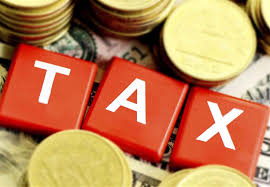Over the years, Nigeria’s tax administration and justice has become a thorny issue as cases of multiple taxation, outright avoidance of tax payments and misuse of tax revenues have made it difficult for the citizens and the government to derive the benefits of tax revenue in the country; BENJAMIN UMUTEME writes.
Tax in Nigeria means different things to different people. It has always divided opinions considering that tax revenue in the country used to mostly go into private pockets leaving the government with the short end of the stick.
With the various reforms by the Federal Inland Revenue Service (FIRS) over the years, revenues that accrued to the three tiers of the government improved significantly.
Data from the National Bureau of Statistics (NBS) showed that from January 2022 till last year, tax revenue from the FIRS did sustain the federation as the Nigeria National Petroleum Corporation (NNPC) bore the burden of under-recovery.
Little wonder that the FIRS led by Muhammad Nami, in its “FIRS 2022 Performance Update,” stated that it generated record N10.1 trillion revenue in 2022.This is the highest tax collection ever recorded in its history.
Despite the success recorded, tax collection continues to be a burden to many Nigerians, who are disillusioned about the utilisation of the monies collected.
However, with the coming on board of President Bola Ahmed Tinubu, it is obvious that the country needs to find new sources of funding for its many projects.
With revenue from oil falling short due to the activities of oil thieves and pipeline vandals, the federal government has turned its attention in a bid to explore new ways of raising tax revenues without necessarily burdening citizens on the lower rung of the ladder.
To achieve that objective, it was obvious that the government would have to tweak its National Tax Policy as it presently stands.
Presidential commitment
To actualise it, the president announced the setting up of the Presidential Fiscal Policy and Tax Reform Committee (PFPTRC) to be headed by Mr. Taiwo Oyedele, with the aim of coming up with a tax policy that will spur voluntary compliance and raise Nigeria’s tax-to GDP ratio, which is one o the lowest in West Africa.
Speaking at the inauguration of the Committee, President Tinubu said the National Tax Policy that would be borne from the work of the Committee would serve as a yardstick for taxation in Nigeria.
“A comprehensive review of the National Tax Policy is crucial as part of the building blocks for the PFPTRC to achieve its mandate. In this regard, the NTP 2024 builds on the NTP 2012, revised in 2017. The NTP 2024 reinforces the fundamental objectives and directive principles of state policy espoused in Chapter 2 of the Constitution of the Federal Republic of Nigeria, 1999.
“My administration is committed to improving the lives of all Nigerians by ensuring that the tax system is simple, fair, broad-based and able to yield the desired revenue to finance inclusive growth. We are audacious in our plans to diversify the economy, significantly improve the tax-to-gross domestic product ration and eradicate the multiplicity of taxes amongst others.
“Despite the challenges, Nigeria remains a significant economy within the region and globally. An enabling fiscal policy and environment and efficient management of our resources will further strengthen our ability to become a more robust and flourishing economy.
“Our quest to improve revenue shall be based on best practices. We shall not tax capital but tax investments. In essence, we shall tax fruit and not seeds. Our focus is to establish a stable and symbolic relationship between fiscal and other policies to create a new economy, decent jobs and better opportunities for all.”
PFPTRC’s perspective
The broader perspective of the Committee’s creation is to be able to promote a coherent, equitable and efficient tax system that supports productive activities, delivers sustainable fiscal outcomes, while being inclusive and competitive with a view to activating shared prosperity for our people.
Also, part of the rationale is that it should serve as the parameter for taxation in Nigeria, ensuring that our fiscal goals are aligned, properly coordinated and effectively harmonized across the tiers of government. It serves as a guide and reference point of taxation, tax administration, tax dispute prevention and resolution.
“Except otherwise intended, we shall not tax capital or investments but income, we shall not tax production but consumption, we shall not tax poverty but share in prosperity, we shall not tax seed but fruits,” the Committee stated.
Committee’s proposal
As a way to ensure tax compliance among Nigerians, the Committee is proposing among other things the exemption of manufacturers, farmers and other categories of businesses from paying withholding tax.
Speaking during a public consultation workshop for journalists and public affairs commentators on the proposed changes to the National Tax policy Monday in Abuja, the chairman of the Committee, Mr. Taiwo Oyedele, said the objective of the Committee is to simplify the tax law.
He said, “We want to reduce the burden on businesses, promote competitiveness, equity and ease of compliance and tax avoidance, detect tax evasion and reflect what is happening globally.
“We are creating an exemption for withholding tax for small businesses and what we have in mind is N50 million. We have reduced the rate for real businesses to as low as 2%- people producing goods and services because the margins are very small.
“We have created an exemption for manufacturers – so if you are a manufacturer, don’t worry about withholding tax. If you provide input to manufacturers like farmers, don’t worry about withholding tax.”
Other proposals by the Committee include the harmonisation of taxes collected by the federal, states and local government to about 8 categories from the present high number that leads to tax evasion and underreporting of taxes. These are: income tax, property tax, Value Added Tax (VAT), customs duties, excise tax, stamp duties, special levy, and harmonised levy.
“The principles that we are working with is to do away with nuisance taxes with very low revenue yield, high cost of collection and ultimate burden on the poor and small businesses.”
Further proposals by the Committee are: Slashing the cost of collection by revenue generating agencies from four per cent to one per cent. In addition, the Committee is proposing that tax collection be done in a way that the three tiers of government would get their allocations on a daily basis instead of the monthly sharing formula by the Federal Accounts, Allocations Committee (FAAC).
Oyedele insisted that the proposals would ensure that government agencies stick to their mandate instead of the present duplications of tax collections.
“We are serious with the one per cent and it should cut across everybody, if you cannot collect revenue with one per cent, then you should not be collecting it at all. That’s why we were saying let government agencies focus on the primary reason they were set up for.
“We believe the system can be configured to credit the accounts of local, state, and federal governments daily.”
Expert advice
In his view, a political economist, Adefolarin Olamilekan, said the federal government is using one stone to kill two birds, especially with the review of the National Tax Policy.
He noted that the work of the Committee, when completed, would help to correct the fiscal imbalance in the economy through tax harmonisation and revenue collection.
Adefolarin also noted that the process was a major shift from what was obtained in the past.
“We may also see constitutional review on tax collection and revenue distribution, especially the NNPC Ltd. oil base receipt. Overall while the goal of the Committee is primarily on the federal tax base item, we won’t be surprise to see it seeking harmonisation of the federal government tax base and receipt because the government can only solve the challenge of fiscal imbalance if it strategically tackles the disarticulated tax revenue process and it many fault,” he said.
Going forward
Adefolarin, who is also a development researcher, advised the Committee to fashion out a multi-sectoral home grown fiscal and tax policy strategy framework.
“Secondly, the outcome of the recommendation must be a solution to address the gaps leading to tax administration challenges burdening our fiscal governance.
“Lastly, the recommendations must be practical enough to avoid the intriguing politicisation of tax administration and fiscal governance environment as the goal is to reduce fiscal imbalance by using tax revenue receipt to spur economic growth and development,” he said.




